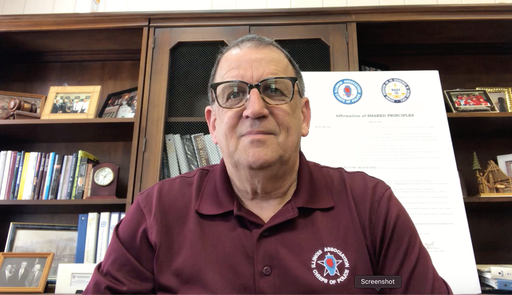Qualified immunity task force delays recommendations until next yearBy Ed Wojcicki, ILACP Executive Director December 9, 2021
In a move that surprised us, the state’s qualified immunity task force stopped considering recommendations yesterday (December 8) after a vote on a key recommendation went against the preference of the two chairs, Senator Elgie Sims and Rep. Justin Slaughter. The group was having its eighth meeting and is formally called the Task Force on Constitutional Rights and Remedies. After that vote about an hour into the meeting, Senator Sims called for “more discussion” and Rep. Slaughter called a recess. After 20 minutes, the meeting resumed, and the task force voted to “streamline and synthesize” the 17 recommendations rather than resume voting on the 15 remaining recommendations. The task force, against the wishes of the Illinois Chiefs, Illinois Sheriffs and others, also voted seek an extension of the committee’s sunset from December 31, 2021, until some undetermined date in 2022. The best news for the Illinois Chiefs was that the task force rejected a recommendation to endorse HB 1727 (Rep. Tarver), which attempts to end a state-level qualified immunity for law enforcement and to make it easier to go after cops individually for punitive damages. This recommendation failed by an 8-10 vote, and that’s what triggered Sims and Slaughter to postpone other votes. The task force’s plan was to vote on all 17 recommendations (as the number had increased from 16 to 17). But the task force voted on only two of them:
That is when Senator Sims jumped in and called for “more discussion” before more votes were taken. After a recess, the motion to stop considering additional recommendations but instead, to “streamline and synthesize” all of the recommendations and delay the task force’s work passed by a narrow vote. We voted against this and preferred just to proceed with the recommendations already submitted. By “we,” I mean that Chris Conrad of Highland voted on our behalf. He is our rep on this task force and has done an excellent job speaking up and delivering our message to other task force members. Early in the meeting Conrad asked if the task force’s final report could include findings of fact related to the recommendations, and he also asked to allow for a public comment period once the task force makes its preliminary recommendations. Our opinion was and is that every recommendation in a report like this should emanate from “findings of fact,” and the task force has yet to document that qualified immunity is a significant barrier to people seeking a remedy for having their constitutional rights violated. ICJIA data showed that in Illinois, qualified immunity has been granted in only 20% of cases, and qualified immunity was flatly denied in more than 42% of Illinois cases. Slaughter responded to Conrad that the issues of “finding of facts” and “a public comment period” could be addressed after the meeting. But nobody returned to these topics before the meeting adjourned. No dates were set for the streamlining process or the next meeting. |

